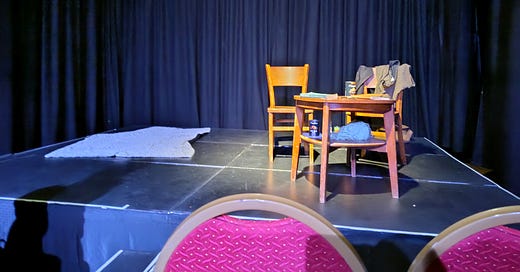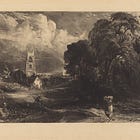The End of Now @ The Bread and Roses Theatre - Review
Uninteresting characters say nothing of note. ★
At The Bread and Roses Theatre, Clapham, until 13th October 2024.
Tickets £10 (£6 concession).
Rating: ★
The End of Now is not as egregious as some 1-star works. It is not cringe-inducing or socially problematic; it’s just a mercifully brief 45 minutes of dullness. It tells the story of a couple, trapped in their flat by an ambiguous world ending event or set of events, as their relationship is strained. It has neither the substantive world building to be good apocalypse media nor the character work to be a tense relationship drama. It feels like a sitcom filler episode with the jokes removed.
The characters are not well developed enough for an audience to care about the relationship. They both deliver well-rehearsed and pleasantly crafted monologues at eachother with little enagement, it sits somewhere between theatrical and naturalistic with neither being executed well. The pacing and lack of interruption or questions make it unconvicing dialogue, while the mundane subject matter and shallow motivations (she’s afraid of failure because of her mum; he can’t cry because he’s a man) allow no other avenues of interest. There are occasional explosions of anger which teeter on being interesting, but are quickly resolved with hugs or clear explanations of feelings. Quick movements between vignettes avoid any tension building, there are no meaningful silences or Pinter pauses.
The external threat of the end of the world is sufficiently sidelined that this also does not act as a reason to care. Whatever has ended the world doesn’t seem to be coming for them, they’re more concerned about being bored than dying, and their hope for a world at the end of it is brief and limited mostly to reminiscing about the ways things were.
Staging also works against this piece. The choice of a kitchen table as seating, as opposed to a bed or sofa, limits what the actors can say with their bodies. Closeness or distance, achievable on one surface not two separate chairs, could add some needed chemistry to this piece. The props, however, are well executed in their mundanity, and the tins slowly being depleted are a nice touch.
With a promising setting to examine a tense relationship, The End of Now demonstrates that a good concept is not enough for a compelling play.
You might also like:
The End of The World:
Relationships strained by tragedy:








